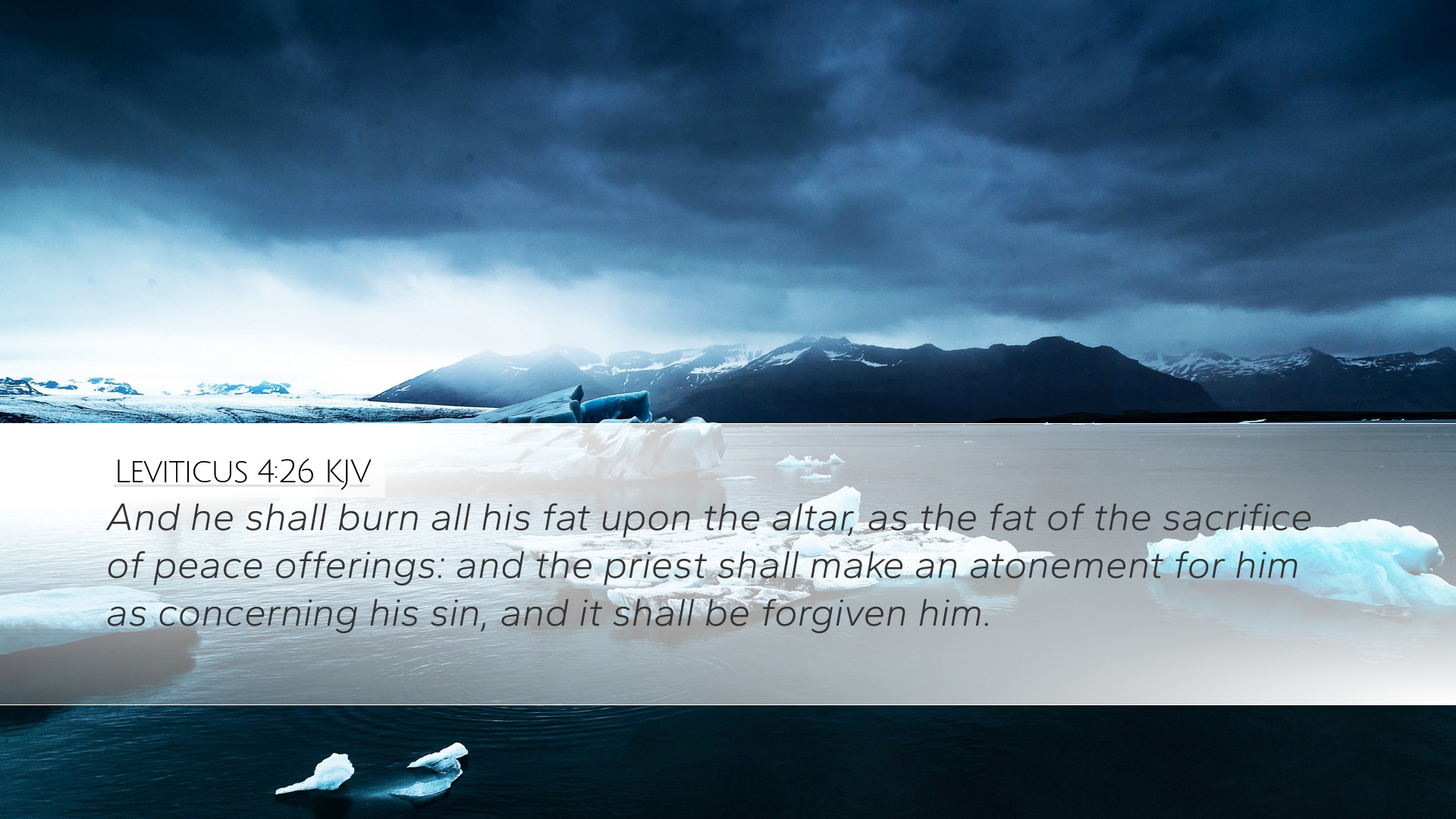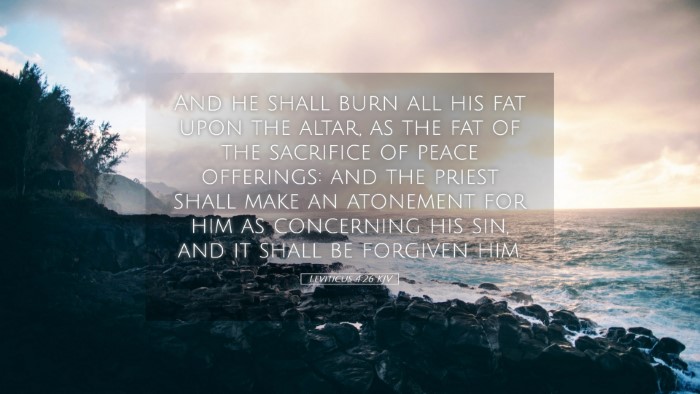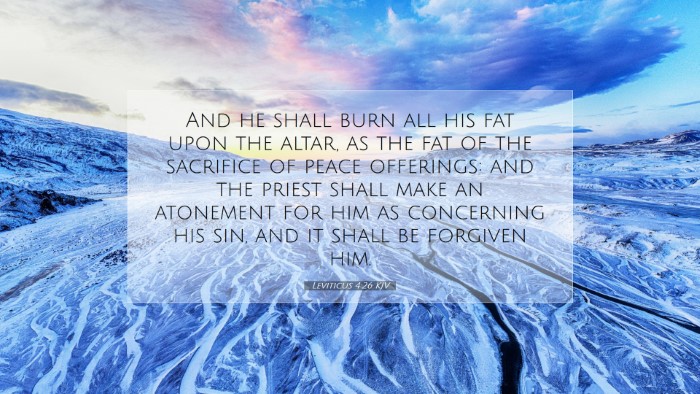Commentary on Leviticus 4:26
Verse Reference: Leviticus 4:26 - “And all the fat thereof shall he take away, as the fat is taken away from off the sacrifice of peace offerings; and the priest shall burn it upon the altar for a sweet savour unto the Lord; and the priest shall make an atonement for him, and it shall be forgiven him.”
Overview
The sacrificial system detailed in Leviticus is a vital part of the Mosaic Law, intended to maintain the relationship between God and His people through ritual and atonement. Leviticus 4 deals particularly with sin offerings, which serve as an avenue for forgiveness for unintentional sins. This verse encapsulates both the ritualistic procedures of the sacrifice and the theological implications of atonement.
Theological Significance of Sacrifice
Matthew Henry notes that sacrifices serve not just as mere ritual but also as symbolic acts of devotion. The act of laying hands on the animal signifies the transfer of sin, indicating that one is bearing the iniquity. The fat of the animal, considered the best part, is offered up as a pleasing aroma to God, reflecting the truth that God desires the best offerings from His people.
Albert Barnes emphasizes that the fat represents the prime portion of the sacrifice, and in the ancient Near Eastern context, the fat held a place of honor. Sacrifices were not only for atonement but also an expression of communal and individual relationship with God.
Ritual Procedure
The ritual described in this verse reflects the precise nature of God’s commands. Each element holds significance, showing the orderliness of worship. The fat being burned signifies purification and the act of dedicating the best to God.
Adam Clarke notes the meticulous details in the sacrificial system, reflecting the holiness of God and the seriousness of sin. The burning of the fat was a shared act between the priest and God, indicating that the worshiper must fully participate in the process of atonement.
The Role of the Priest
The priest's role in this context is crucial. He mediates between God and the worshiper, performing rituals that convey the community’s repentance and need for forgiveness. Matthew Henry points out that the priest represents the people before God, offering sacrifices that restore fellowship. This priestly function is a foreshadowing of Christ as the high priest who ultimately satisfies the demands of the law through His sacrifice.
Understanding Atonement
Atonement is central to the understanding of this passage. The phrase “it shall be forgiven him” indicates God’s merciful response to sincere repentance. Albert Barnes mentions that forgiveness is not just a release from guilt but also restoration to communion with God, fulfilled ultimately in Christ’s atoning work on the cross.
Key Insight: Atonement is both an act of divine justice and mercy. While God must address sin, He desires reconciliation and restoration with His creation.
Application for Modern Believers
The principles illustrated in Leviticus 4:26 continue to have significance for contemporary believers. Understanding the weight of sin and the seriousness of approaching God through sacrifice lays the groundwork for appreciating Christ’s atonement.
- Recognition of Sin: Just as the Israelites were to recognize their sins, modern believers must acknowledge their need for forgiveness.
- Offering Our Best: The call to bring the best of what we have to God, as symbolized by the fat in the sacrifice, is relevant in how we live and serve.
- The Role of Christ: The sacrificial system ultimately points to Christ, the ultimate sacrifice. Understanding this connection deepens the appreciation for the New Covenant.
Conclusion
Leviticus 4:26 serves as a reinforcement of the sacredness of worship and the seriousness of sin. Through the detailed rituals and the assurance of forgiveness, believers are reminded of God’s righteous demands and His gracious provision for atonement. The transition from the Old Covenant sacrificial system to the New Covenant in Christ brings to light the continuity of God’s redemptive plan throughout scripture.


